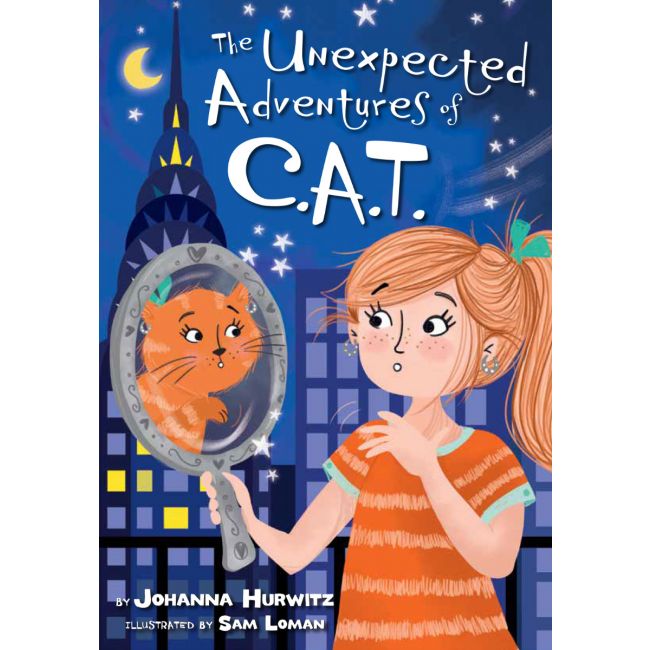The Unexpected Adventures of C.A.T.
Note: This product is printed when you order it. When you include this product, your order will take 5-7 additional days to ship.
She feels so cat-like herself that when her actual cat Ollie, a very picky eater, refuses to eat a mysterious new kind of cat food, she tries to encourage him by tasting a tiny bit of it herself (and finds it, surprisingly, not awful.) That night Chaya has the craziest dream--she dreams she really has become a cat, one with orange fur, the exact color of her own hair.
Or is it a dream?
Join in the adventures as C.A.T. and her annoying older brother Daniel use some magical food to become cats, prowl their neighborhood at night, prevent a cat-astrophe, and see each other in a whole new light.
A purr-fect chapter book for early grade readers (ages 7-9) who like animals and fantasy adventure, even if they are pickier eaters than C.A.T.
Weekly Torah portion study guide.
Quickly order multiple copies!
To see a full list of Parashat HaShavua booklets in alphabetical order, hover your cursor over “Hebrew in the menu above to show our expanded menus. The click on ‘Parashat HaShavua” under “Series” to show all available booklets in alphabetical order.
Do you prefer to see them by their order in the Torah? In the ‘Sort By” Box above the list of booklets, choose “Position.”
You can add all the booklets you need to your cart by clicking “Add to Cart” below each book image.
Need multiple copies? After clicking the “Add to Cart” button for each booklet you want to order, click on the shopping cart at the top of the screen. You can adjust quantity for any title and click “Update” to save.
 A URJ Press Publication
A URJ Press Publication




